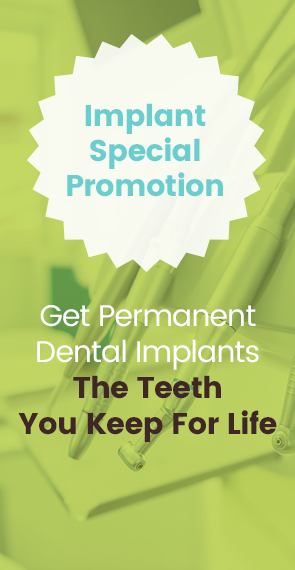Preventing cavities is more than just brushing and flossing your teeth. In fact, how often you eat coupled with what you eat is just as crucial. The food that you consume affects your mouth and teeth even after you have swallowed it and it makes its way through your digestive system. If you have overall poor nutrition, it will be reflected in your mouth and you may notice that you continually face dental caries or even have trouble with your gums. This is because the starches and sugars you consume are attaching your teeth and gums day in and out, especially if you are not removing the plaque from your teeth.
As we mentioned, how often you eat plays an important role in keeping your mouth healthy. Did you know that eating cookies at dinner is LESS harmful than eating them alone as a snack at some point during the day? Below, we will talk more about how food affects your oral health!

Picture: Motion Array
There Are Some Immediate Effects That Food Has on Your Oral Health
The moment you take a bite of food, changes start to occur within your mouth. Bacteria starts to create dental plaque, which sticks to your teeth. The plaque, over time, becomes acidic and the more acidic it is, the quicker it works to create cavities.
If you are wondering just how this happens, it comes down to a bit of science. Carbohydrates will break down into lactose, glucose, maltose, and fructose. These carbs pair up with the bacteria in your mouth and work to destroy your teeth. Some of the most common culprits include:
- Cake
- Cookies
- Candy
- Sodas
- Crackers
- Bread
- Sugary breakfast cereal
- Bananas
Acid from these foods are created when the bacteria and sugar meet. The acids then destroy the minerals inside of the tooth through a process known as demineralization. Naturally, your mouth works to remineralize your teeth, which means adding minerals back to the enamel through saliva, some foods, and fluoride. When the minerals in the tooth enamel are lost and remineralization does not take place quick enough, decay starts.
The longer you allow bacteria to remain on your teeth, the more acid that is produced and the more damage that is done to your teeth.
One of the most important things that you must pay attention to is the types of foods you eat too. When snacking, think about potato chips. Yes, they are good, but what happens when you are done with them? They are stuck in your teeth! The same happens with fruit snacks, raisins, and other chewy foods. Teeth that are tightly pushed together and teeth with many nooks and crannies are more susceptible to decay because the food particles get trapped between them.
KEEP THIS IN MIND – The acid that is produced from the bacteria remains on your teeth for 30 minutes AFTER you eat!
Individuals who tend to sip on sweetened beverages, coffee, and soda throughout the day and those who eat a lot of small candy or carbohydrates have that acid on their teeth all day long. Studies have shown a positive correlation between those who snack and the rate of cavities.
In need of a snack during the day? Try some sugar-free gum or sugar-free candy to hold you over until your next meal.

Picture: Motion Array
Long-Term Effects That Snacking Has on Your Teeth and Oral Health
Some of the long-term effects that poor snacking and poor oral care can have on your health include bad breath, tooth loss, dental decay, and gum disease. Many times, when patients have poor nutritional health, it is not just their teeth that suffer, but the whole body. It is vital to take proper care of your teeth and gums but also eat right and avoid snacking, especially on unhealthy items.
For the Sake of Your Teeth Visit CS Family Dental
Don’t let snacking ruin your beautiful white teeth and reach out to the team at CS Family Dental today. We offer you quality dental care in Denver, CO in our state-of-the-art clinic. Our dentist works hard to provide the best care to patients and can counsel you on proper oral care, nutrition, and healthy food options. Call us today to schedule your appointment!

